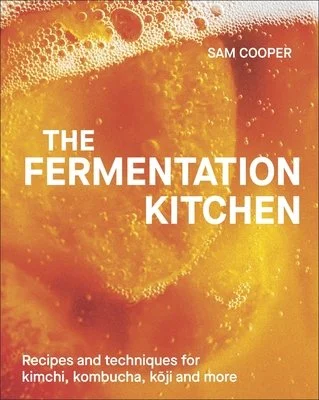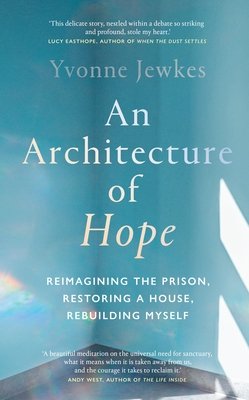It had got so that he could no longer listen to music. He had used to enjoy listening to music but suddenly or gradually it had become intolerable. He could not bear the repetitions of the small and large segments of music while he was listening to it, and what more was music than repetitions of small and large segments of itself, and he could not bear that the music repeated itself endlessly in his head after had listened to it, or, really, after just hearing it without even listening to it: every snatch became an öhrwurm burrowing into him for days. He could not bear even a few bars of music that he knew, because those few bars, that snatch, that hook, drew up the whole of the intolerable music to torment him, and he could not bear music that he did not know as each new bar struck him as inevitable and he always had the dreadful feeling that he had heard and suffered from this music before, or, rather, that his hearing and suffering from this music, whether he had heard it before or not, was a hearing and suffering that stretched into eternity in both or all directions. Of course, it was not only music that he could no longer tolerate: any kind of stimulation of his senses and any kind of self-replicating thought plunged him into the deepest suffering. He could not decide whether to call this suffering imagery repetition syndrome or dysphoric recognition syndrome, for he always felt compelled to nullify his experiences with words, but these terms, once he had thought of them, just repeated themselves in his mind and became examples of the phenomenon that they were a weak attempt to describe. Desperate and weak. He was almost at the point that he could not bear to perform the necessary but necessarily repetitive actions that allowed him to function in the world, or what passed as functioning in his case; he could not bear this constant daily getting up, moving about and eventually going to bed at last, each day the same or each day the same with pathetic little variations that merely reinforced the inescapability of the repetition of the whole, the rolling inevitability of the day. He had not yet tired of going to bed. All he wanted to do was turn his brain off. If he was an insomniac he would not last a week, he thought. Now, though, he thought, that I have thought that thought I will probably lie in bed tonight thinking about how intolerable my imagery repetition syndrome or dysphoric recognition syndrome would be if I was an insomniac and could not turn my brain off, and I will probably think this insomniac thought over and over until I become an insomniac by this repeated thought; thinking about not being an insomniac will make me into an insomniac, he thought. I will not last the week. In Solvej Balle’s seven-volume novel The Calculation of Volume (five volumes of which have been written and published in Danish and two so far in English translation by Barbara Haveland), the narrator finds herself endlessly repeating the eighteenth of November, or, rather the eighteenth of November endlessly repeats itself and she seems to be the only person not caught up in this repetition. Is time somehow caught in a loop, and if so why is she aware of this loop, both trapped in it and outside it, fractured from the endlessly repeating matrix of stopped time; or are all moments in fact like this, is there nothing but an infinite set of static and unpassing moments through which our consciousness shoots itself like a rocket, breaking through each day into a new day, a new set of moments strung together merely on our awareness of them, in which case why can’t the narrator move on, what is it that brings her back to restart each day as the same eighteenth of November? She returns home (she has been away). She hides in her house in a room that her husband does not go into that day. She observes her husband, she observes her garden and the weather, she soon knows exactly when the house will creak, a bird will sing, a car will pass: it is the same each day; each day is the same day. She observes and observes and the scale of her observation alters: the infraordinary bristles with significance but significance amounts to nothing in the end. Everything is reset. The narrator tries making contact with her husband but eventually tires of explaining the situation anew every day: he cannot remember what she told him on the previous iteration of this one repeating day. Without memory there is no time. There is no companionship in the narrator’s husband. Only the narrator experiences a progression of time, only she is moving on though only she is aware that nothing else moves on so, maybe, actually, she is the only one who does not move on. What the narrator consumes is not replenished. Everything else is replenished. What the narrator does is not undone. Everything else is undone. She wonders, what is a person’s impact on the world? She wonders, how much experience can you squeeze from or into a single day without losing your capacity for experience? We wonder, when is even a single day too much? Even though his imagery repetition syndrome or dysphoric recognition syndrome was beginning to make every aspect of his life intolerable, every aspect that is except the relinquishment of consciousness that presents itself as sleep, for some reason his imagery repetition syndrome or dysphoric recognition syndrome was not aggravated by reading On the Calculation of Volume, in fact it was slightly emolliated, if that is the word, his imagery repetition syndrome or dysphoric recognition syndrome was soothed a little by an account of total repetition, although perhaps it was not an account of total repetition but an account of liberation from and within the context of total repetition, which might, he thought, be helpful to him in his imagery repetition syndrome or dysphoric recognition syndrome and its accelerating terrifying approach to total repetition, an approach that could soon make life intolerable. Too much hangs on this, but he was ready, he thought, to read Volume 2.

































































































